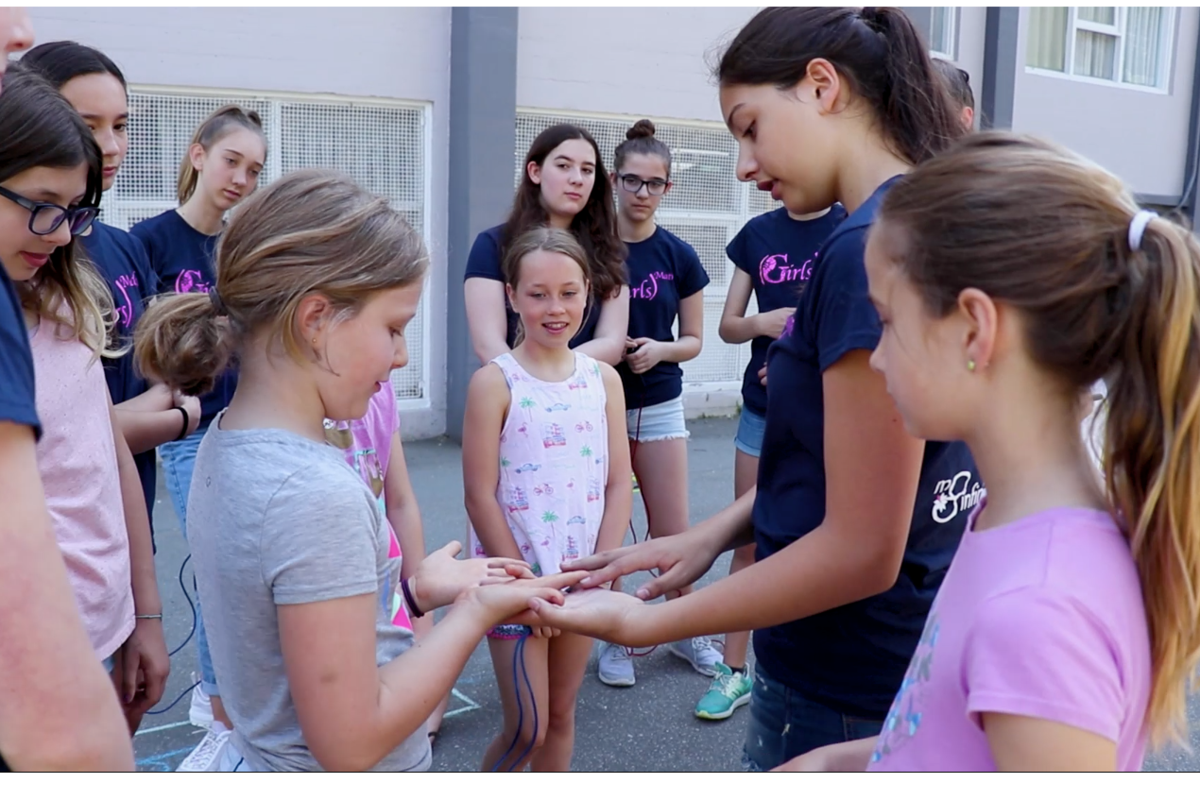[ad_1]
Alexa Bailey Expands Girls to the Power of Math Program to Sea to Sky
While working as A math tutor to a young girl in her neighborhood, Alexa Bailey of Vancouver noticed that the girl’s confidence in STEM (science, technology, engineering and math) subjects was already on the decline, even at a young age. But through the use of games and activities to teach the lessons, the girl’s confidence and understanding improved significantly.
Seeing the benefits with her own eyes, Bailey, who was only 14 at the time, became curious if other young girls were having the same math issues with self-confidence.
This curiosity led her to conduct a research experiment for her 8th grade science fair.
Mentored by Dr. Toni Schmader of the University of British Columbia, Bailey created a survey measuring student confidence in math and presented it to several elementary schools in Vancouver.
What she found was that while boys ‘confidence seemed to stay the same over the years, girls’ confidence in STEM subjects was declining year on year.
“Overall, the girls experienced a statistically significant drop in their self-confidence as they progressed through elementary school,†Bailey said. “I really didn’t want that to happen, which is why I created Girls to the Power of Math (G ^ M), an intervention program that targets grade 3 girls using jump counting, multiplication and fun activities to help build confidence and inspire a love of math.
Now 16 and already a high school graduate, Bailey is on a sabbatical before heading to college where she hopes to study bioengineering. In the meantime, she lives in her family home in Whistler and spends her days volunteering for the Whistler Adaptive Sport Program and Whistler Mountain Safety while working to expand G ^ M to elementary schools in the city.
The program was just approved for nonprofit status, which Jaqueline Maartense, one of the locals who helps Bailey set up the program in Whistler, said it was an important first step in starting the program. The next step is to find local teenage girls who are willing to volunteer their time to become the mentors of the program.
“You don’t have to be an expert in math, but you have to love working with children and it would probably help you if you knew your multiplication tables up to 10,†Maartense said of this. they are looking for a mentor.
“But we are really looking for people who are motivated to be leaders in the local community and who want to help inspire other human beings to be the best they can be.”
Those who are interested in becoming a mentor can send their resume and cover letter to Maartense at [email protected].
Sarah Hycriw, head of the Whistler High School Math Club, and Hannah Bostrum, a former Whistler Waldorf High School math teacher, also help Bailey and Maartense start the program.
Hycriw will act as the staff supervisor for the program while Bostrum will oversee the training of mentors to upgrade them and enable them to teach their own groups of ten students.
The free program, funded by the Actuarial Foundation of Canada, aims to add a mathematical twist to classic childhood games like hopscotch, tag, jackpot and skipping rope. However, according to Bailey, children’s favorite game always ends up being a variation of “What time is it Mr. Wolf” which they call “What time is it Mrs. Wolf” where the wolf gives a math problem, like 3 x 6, and students should skip the count (three, six, nine…) at each step until they reach the answer.
Although open to all girls aged around 7 to 12, the program targets girls in Grade 3, as this is when Bailey’s research has shown that girls’ confidence in mathematics began to decline. It also corresponds to when students would normally learn their multiplication tables.
However, Bailey said the goal of the program isn’t to teach kids their multiplication tables, although that’s a good idea to remember as well. The goal is to give children positive experiences with math and to show them that math can be fun.
“The goal is for children to have fun and have fun doing math so that they associate math with a fun experience and can remember it later when they might have difficulty or think they might. can’t do it, they can look back. about that experience and say, “Hey, math is fun and I can do it,” she said.
“I’m proud to be able to make an impact on the lives of all of these girls and hopefully change their outlook on math and inspire them with a love of math. I really hope to see the gender gap in STEM related fields diminish in my lifetime and I am proud to have done something meaningful and lasting and to be able to reach as many girls as possible.
[ad_2]

